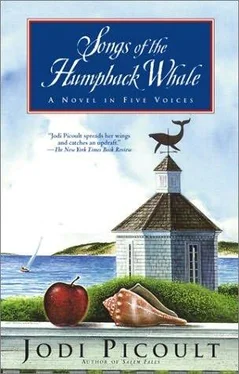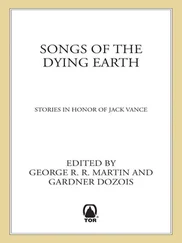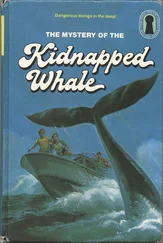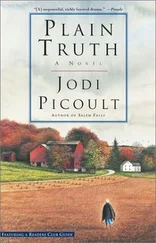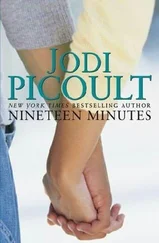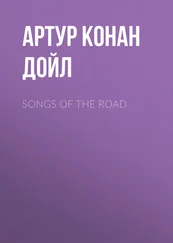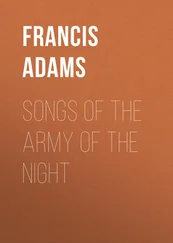“I’m sorry,” I whisper, frightened to look at Oliver. “I didn’t expect that to happen.” Oliver doesn’t respond. “I’ll clean it all up. I’ll organize it. Keep it in my closet, whatever.” I make an effort to scoop nearby files into my arms, gathering them like a harvest. I do not look at Oliver and I do not see him coming for me.
“You bitch.” He grabs my wrists in his hands.
The way he looks at me cuts inside me, says I am violated, insignificant. I have seen these eyes before and I am trying to place them but it is so hard when I can feel myself dying. I have seen these eyes before. Bitch, he said.
It is in me, and it has been waiting for years.
As my knees sink, as red welts form on my wrists, I begin to take ownership of my own soul, something that has been missing since childhood. Strength that could move a city, that could heal a heart and resurrect the dead pushes and shoots and stands and (bitch) concentrates. With the sheer power of everything I used to dream I could be, I break away from Oliver’s hold and strike his face as hard as I can.
Oliver drops my other wrist, and takes a step backward. I hear a cry and I realize afterward it has come from me.
He rubs his hand across his cheek, red, and he throws his head back to protect his pride. When he looks at me again, he is smiling, but his lips are slack like a carnival clown’s. “I suppose it was inevitable,” he says. “Like father, like daughter.”
It is only when he has said this, the unspeakable, that I can feel my fingers striking his skin, leaving an impression. It is only then that I feel the pain spreading like blood from my knuckles to my wrist to my gut.
I never imagined there could be anything worse than the time Oliver struck me; the time that I had taken my baby and left him; the event that precipitated Rebecca’s plane crash. I believed the reason there was a God was to prevent such atrocities from happening to the same person twice. But nothing prepared me for this: I have done what I’ve sworn I could never do; I have become my own nightmare.
I push past Oliver and run down the stairs. I am afraid to look back, or to speak. I have lost control.
From the dirty laundry pile I quickly grab an old shirt of Oliver’s and a pair of shorts. I find my car keys. I pull a Rolodex card with Joley’s address and walk out the side door. I don’t look back, I slam the door behind me, and still wearing only a bra and a slip, climb into the cool refuge of my old station wagon.
It is easy to get away from Oliver, I think. But how do I get away from my own self?
I run my fingers over the leather of the seat, raking my fingernails into pits and tears that have developed over the years. In the rearview mirror, I see my face and I have trouble placing it. Several seconds later I realize that someone is echoing my breathing.
My daughter holds a small suitcase on her lap. She is crying. “I have everything,” she tells me. Rebecca touches my hand; the hand that struck her father, that struck my own husband, that resurrected those dead and buried gaps.
When I was ten I was old enough to go hunting with my father. Every year when goose season came, when the leaves began to turn, my father became a different person. He’d take his shotgun out of the locked closet and clean the entire gun, down to the insides of the barrels. He’d go to the town hall and get a hunting license, a stamp with a picture of a bird so pretty it made me want to cry. He’d talk about that roast goose dinner he was going to get us, and then early on a Saturday he’d return with a fluffy grey bird, and he’d show Joley and me the place where the shot went in.
Mama came into my room at four A.M. and said if I was going goose hunting I’d have to get up. It was still pitch dark when Daddy and I left the house. We drove in his Ford to a field, owned by a buddy, that was used to grow field corn in the summer, which-Daddy told me-is what geese love the most. The field, which had sported stalks of corn much taller than me just weeks before, had been razed; there were false pillows of dust caught between stumps of corn left from summer.
My father opened the trunk and extracted the leather case that held the gun and the funny goose decoys Joley and I used as hurdles when we played Obstacle Course. He scattered them through the field, and then he took a pile of dead stalks and created a little hutch for me, and one for himself. “You sit under there,” he told me. “Don’t breathe; don’t even think about getting up.”
I squatted down like he did and watched the sun paint the sky as it slowly turned into Saturday. I counted my fingers and I took quiet, shallow breaths, as I’d been told. From time to time I stole a glance at my father, who rocked back and forth on his heels and absentmindedly stroked the barrel of his gun.
After about an hour my legs hurt. I wanted to get up and run around, let free that dizzy feeling behind the eyes that comes when you don’t get enough sleep. But I knew better. I stayed perfectly still, even when I had to go to the bathroom.
By the time the geese actually arrived (which according to my father, never took this long), the pressure on my bladder caused by squatting was unbearable. I waited patiently until the geese were feeding on the corn field, and then I cried out, “Daddy! I have to pee!”
The geese flew into the air, deafening, a hundred wings beating like just one heart. I had never seen anything like it, this mass of grey wings blotting the sky like a cloud; I thought surely this was why he had wanted me to come hunting.
But my father, startled by my cry, missed his opportunity at a good shot. He fired twice but nothing happened. He turned to me; he didn’t say a word, and I knew I was in trouble.
I was allowed to go to the woods that edged the corn field to pee, and, amazed that my father hadn’t given me any toilet-paper substitute, I pulled up my underpants and overalls feeling dirty. I settled quietly under my cornstalk hutch, much better. My father said under his breath, “I could kill you.”
We waited two more hours, hearing thunderous shots miles away, but did not see any more geese. “You blew it,” my father said, remarkably calm. “You have no idea what hunting is like.” We were about to leave when a flock of crows passed overhead. My father raised his gun and fired, and one black bird fluttered to the ground. It hopped around in circles; my father had shot off part of its wing.
“Why did you do that, Daddy?” I whispered, watching the crow. I had thought the purpose of hunting was to eat the game. You couldn’t eat crow. My father picked up the bird and carried it farther away. Horrified, I watched him wrench the crow’s neck and toss it to the ground. When he came back, he was smiling. “You tell Mama about that and I’ll give you a good spanking, understand? Don’t tell your brother either. This is between me and my big girl, okay?” And he gently placed his shotgun, still smoking, in its leather case.
“Okay,” I tell Rebecca. “I know what we’re doing.” Adjusting my side mirror, I pull out of the development and onto the freeway that leads to the beach at La Jolla. Rebecca, sensing that we are in for a long drive, rolls down her window and hangs her feet out the window. A million times I have told her that it is not safe for her to do that, but then again I don’t even know if it is safe for her to be with me anymore, so I pretend I don’t see her. Rebecca turns off the radio, and we listen to the hum and grind of the old car’s symphony, the salt air singing across the front seat.
By the time we reach the public beach, the sun is pushing scarlet against the underedge of a cloud, stretching it like a hammock. I park the car along the span of sidewalk that lines the beach, diagonally across from a late-afternoon volleyball game. Seven young men-I wouldn’t place any of them past twenty-arch and dive against the backdrop of the ocean. Rebecca is watching them, smiling.
Читать дальше
